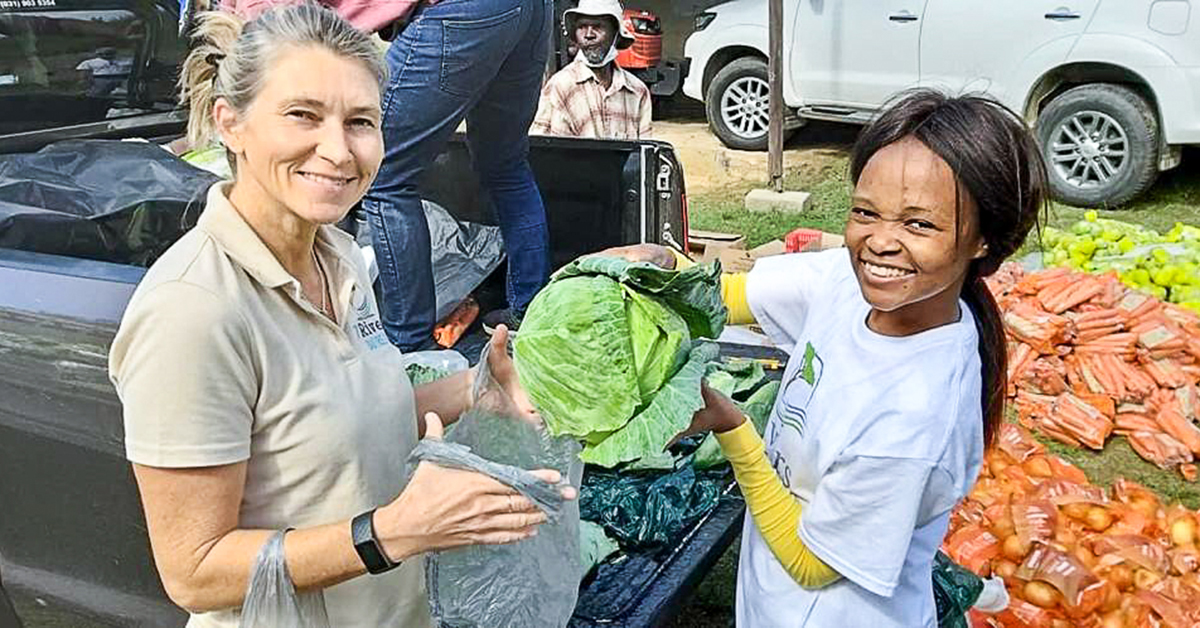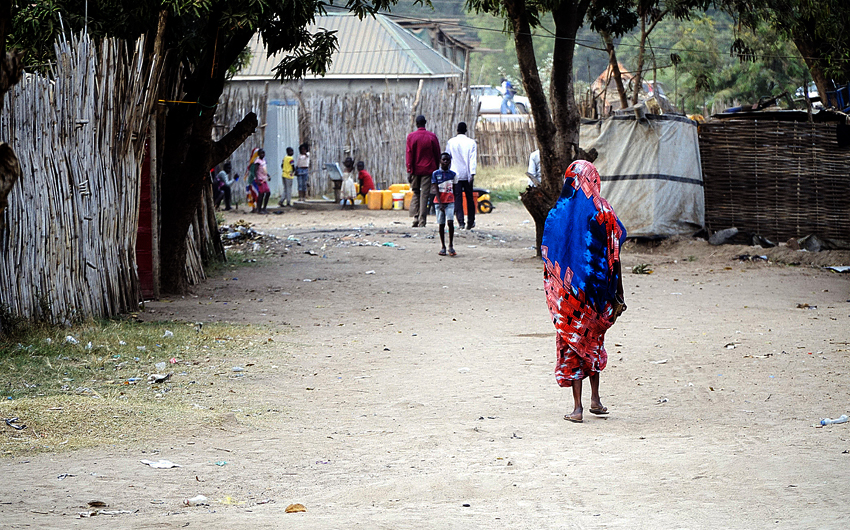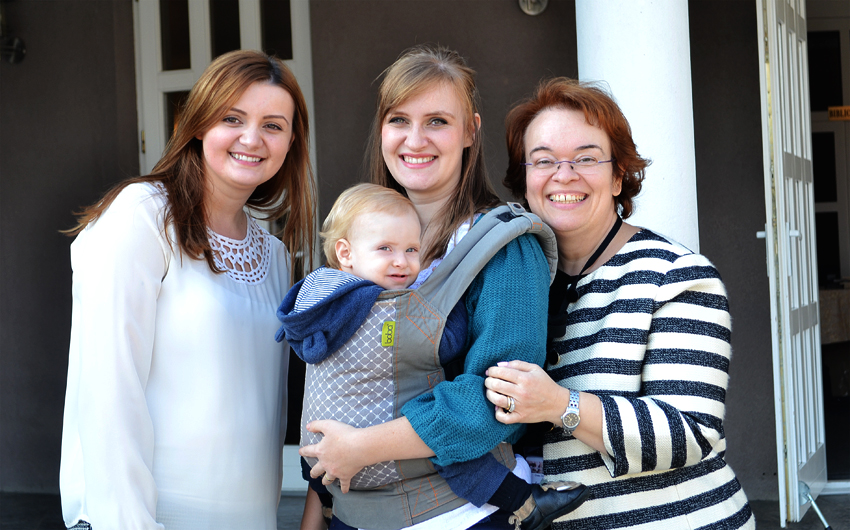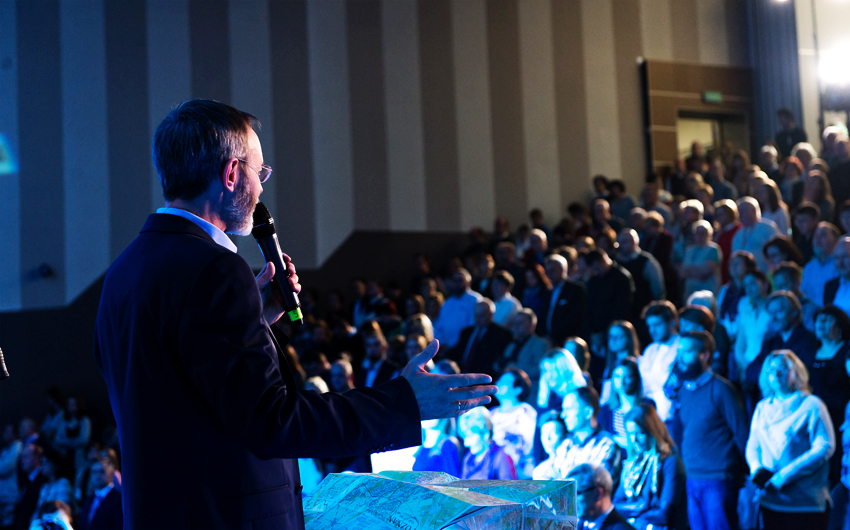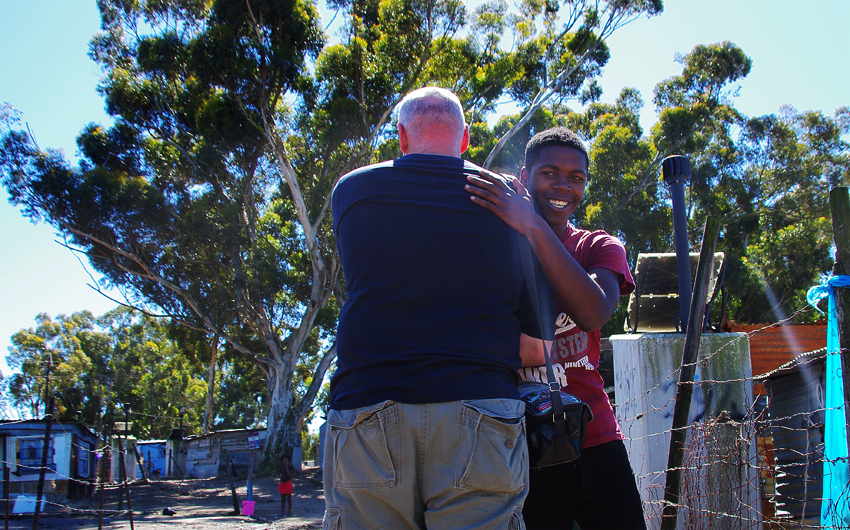"Why do the men sit on one side and the women on the other?"
Years ago, ITMI's founder, Bill Bathman and his travel companion, Don Christiansen, were in a Romanian church.
This particular group of believers held long-standing traditions that had gotten them through the persecution of the Communism and the scarcity of the aftermath that followed.
But after the Iron Curtain came down, Don wondered why they sat the way they did. Was it to keep everyone from being distracted? Was it their sense of modesty and propriety?
Several attendees that Sunday morning raised their eyebrows and shrugged in answer to his inquiries. Finally, one of the eldest ladies knew they answer.
"The heater used to be on this side, so all the women sat near it to keep warm," she revealed.
Asking Why We Do Things Is Important
It's important to stop and ask "Why?" every now and then. Sometimes the reason is still a compelling reason, and the answer provides a renewed sense of vision and inspiration.
Others, there may be no real reason and things need to be adapted.
Four Reasons ITMI Serves and Empowers Nationals
Why does ITMI serve and empower national believers? There are four main reasons.
- They speak the language.
- They grew up in the culture.
- They understand current local needs.
- They are cost effective.
1. They Speak the Language
It takes time to learn a new language. Some are harder to learn than others, too. And of course a missionary can't just know some words, like how to find the restroom and make purchases.
A missionary has to be able to share abstract ideas like the Gospel, love and spiritual matters.
The time spent on language training varies greatly for missionaries, but regardless of the time spent, it needs to be learned.
National believers already know the languages they need to know to share the Gospel. They can reach people with the Good News right now!

A national doesn't need to study a language. They can reach people with the Good News right now!
2. They Grew Up in the Culture
Cultural norms are important. Our nationals know how to navigate these waters. They didn't spend years and money learning them, either.
They already know how to work within the culture.
In addition to being able to sidestep landmines of cultural taboos, having a history of being in the culture for long time, they are able to make cultural references that help explain the gospel, and enable it to sink deep into hearts.
While the Holy Spirit can use the words anyone says to reach who He wants to reach, we believe nationals are ideally positioned to reach the people of their own culture.
A national navigates cultural issues naturally, and can use them to help explain the Gospel.
3. They understand current local needs.
During the COVID-19 pandemic, ITMI partners Kelly, Cherise and Fifi Smith were doing a Project Joseph outreach to provide the Zulu villages where they live and minister with food. Many were suffering and unable to obtain food because of the pandemic.
The Smiths planned their outreach carefully. During the distributions, Fifi, who grew up in the village and is a Zulu herself, caught that some families were trying to pass off other families' living structures as theirs, claiming they had more in their family and needed an extra amount of food.
Fifi grew up in the village. She understands the mindset, the culture and the language, and was able to ensure that the villagers received the food they needed but not at the expense of other families in the village.
A foreigner might not have understood what was going on, which might have led to some families not getting anything and the name of Jesus not being honored but associated with favoritism and dishonesty.
A national knows how to best meet the needs of those around them.
4. They are cost effective.
According to Christian Aid Mission, while sending an American family to a rural area can cost $75,000 a year plus start up funding, resourcing a believer that is already living in the location and part of the culture averages $2560.
They note that depending on the location, that $2560 could double or triple.
Even at the maximum tripled amount, equipping a national believer to reach their own people costs far, far less.
One year of support for an American missionary family could provide basic support for 10-40 indigenous believers! (Indigenous in this case means already in place, not "inserted.")
Nationals Are Effective
All four of these come together to make nationals remarkably effective at reaching their people.
For example, the title photo of this post is of ITMI Director, Steve Evers with a group of South Sudanese believers who were "accidentally" equipped with a weekend training Steve gave.
Their perspective was so altered that they built a counter-cultural church on the Biblical principles of leadership they learned!
That church is still infiltrating its neighborhood in Juba, South Sudan with the Good News and is growing so fast they can't keep a roof over all the heads who want to be a part of it!
The South Sudanese planted church is infiltrating its neighborhood quickly and effectively.
Adi and Ema Ban, serving in Romania, have been so effective at discipling young married couples, that they launched a second Young Couples' Fellowship in 2016.
Their influence in Romania has grown as they are invited to share in other cities, contribute to books and call others to minister to those in need around them.
Ema Ban with two young women at a retreat.
A native Polish-speaker is the only one in a position to translate the Bible into everyday, modern Polish like ITMI's Dr. Piotr Zaremba did.
After 16 years of translating, Piotr and his team have published two versions of the Bible translated from original languages into Polish. These translations are revolutionizing the way Polish-speakers understand the Lord and read His Word!
Piotr's understanding of the needs of his beloved people have led to an incredible team reaching people from a myriad of walks of life in Poland.
ITMI's Piotr Zaremba addresses the crowd at the launch celebration of his Polish Bible Translation.
South African Charl van Wyk and co-laborers from his church, have seen incredible turn-arounds in the lives of youth in a estranged settlement near their city called Stone Hill.
Charl was also involved in helping a Zimbabwean leader reach youth in his village and boosting the ministry of a Zimbabwean couple while helping their entire village by equipping them with a maize mill in 2016.
Relationships are changing lives in Stone Hill.
Only a national could do what ITMI's Paul and Molly have done for their 19 daughters in India's legal environment.
Paul's family of Indian believers is uniquely positioned to reach people in the very-difficult-to-navigate caste system culture, and have reached many through their sport ministry, after school tutoring, door-to-door ministry in the slums, support for widows and multiple church-plants.
Paul and Molly with their 23 children!
Paul shares Jesus and common wisdom to boys from a slum in India through their sports outreach ministry.
What About "Inserted" Missionaries?
We would never want to take anything away from those called to move somewhere to demonstrate and declare God's Kingdom as missionaries.
Their obedience to God's calling and sacrifice is to be honored and supported. We commend these faithful brothers and sisters.
We're thankful for them.
Our Unique Call and Vision
ITMI's unique calling is to find nationals who are already faithfully serving God with what they have and help them with the resources they need - training, funding, prayer and encouragement to name just a few.
Nationals can reach their people in a way no one else can. They are uniquely positioned to declare and demonstrate the Gospel to those around them.
They can make a dollar stretch until it yells for help! And they can do a lot of kingdom work with just a little.
ITMI's Charl van Wyk equips African evangelists and pastors with a simple bicycle, multiplying the territory they can share the Good News with.
"Indigenous Missionaries Cost Comparison Chart | USA." Indigenous Missionaries Cost Comparison Chart | USA. Christian Aid Mission, n.d. Web. 27 July 2016.
About the Authors
Summer Kelley is a writer and follower of Jesus living in Phoenix, Arizona with her husband and three kids. She’s had the honor and privilege of telling ITMI’s stories since 2006. Summer loves reading, the outdoors and Coca-Cola Classic.
 Steve Evers has advocated for and served the ITMI partners as ITMI Director since 2001. Approximately once a year, Steve visits with ITMI partners in their countries and brings stories back to encourage supporters. Steve enjoys photography and mechanics, (both hobbies that have greatly benefited ITMI partners!) Prior to becoming ITMI's Director, Steve served on the Board of Directors for 4 years. Steve lives in Arizona with his wife, Darlene.
Steve Evers has advocated for and served the ITMI partners as ITMI Director since 2001. Approximately once a year, Steve visits with ITMI partners in their countries and brings stories back to encourage supporters. Steve enjoys photography and mechanics, (both hobbies that have greatly benefited ITMI partners!) Prior to becoming ITMI's Director, Steve served on the Board of Directors for 4 years. Steve lives in Arizona with his wife, Darlene.
Get Weekly Updates from the Field!
Subscribe to our email updates


